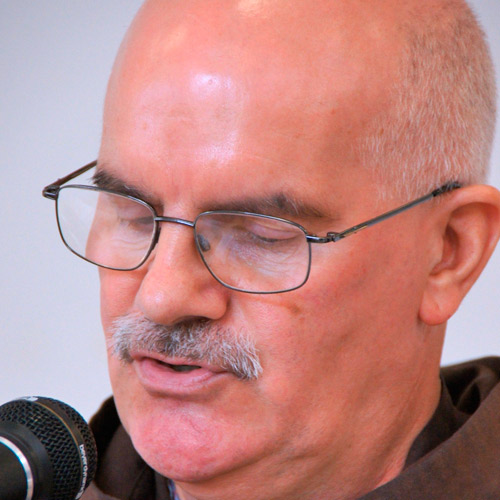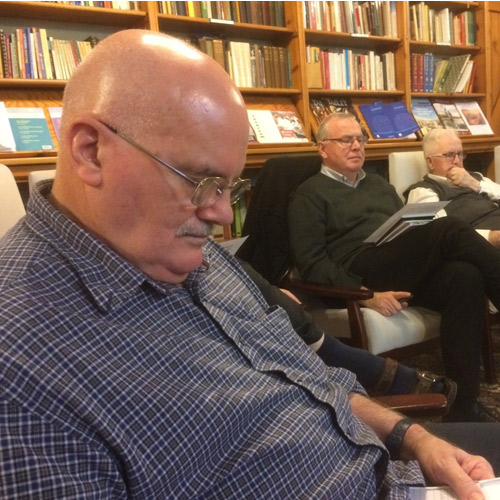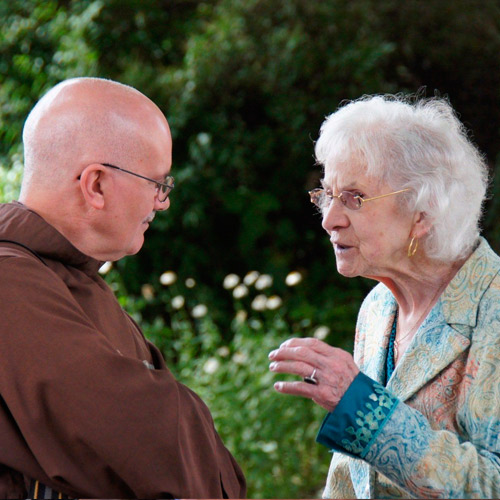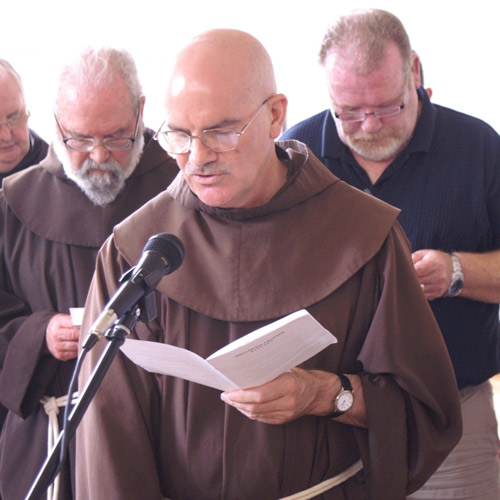A Call: The Mysterious Journey
In my soul there is a temple, a shrine, a mosque, a church that dissolve, that dissolve in God.
[Rabia of Basra, 8th-century – the first woman Sufi Saint of Islam]
I hesitate to talk or write publicly about my religious vocation. There’s something private about it, like marriage. So, I compose this with a degree of nervousness. I certainly do not present myself in any way as a role model – I simply don’t measure up! In short, I’m a struggling human being, who aspires to be a Christian.
One of 6 surviving children, I was born in 1951 into an ordinary, working-class, Catholic family in a small Irish town. I entered the Cistercian monastery of Mount Melleray Abbey aged 18, after completing secondary education. There I learned a little about some of the great Carmelite mystics, especially St. Therese of Lisieux, from my Novice Master – a lovely human being. After 18 months, I voluntarily left with the intention of returning after a few years of a more maturing “life experience.” With hindsight that Cistercian experience was influential. For want of better words, it began to shift me from a more institutional, religious practice tending to “keeping the rules” to a more intimate personal relationship with God, where love is key. I ended up working in a bank, got involved in the Simon Community (a charity supporting homeless people), initially part-time and subsequently full-time. The major presenting problems then for homeless people were alcoholism and mental ill-health – there seemed to be very little drug issues. Afterwards I emigrated to London.
A young naïve man in early 70’s London – exciting and scary. I loved the “free,” open, multi-cultural, multi-racial big city atmosphere. Discovered the joys of discos and partying. I worked in residential homes for senior citizens and children/young people. Challenging, especially the latter! Learned to care for the sick and ageing, accompany the dying, lay out corpses, change nappies, care for quite damaged children “in care,” try to navigate the challenges of “stroppy” adolescents. My Catholic faith as-was collapsed – painful and disorientating. For about 2 decades I drifted on the edge of the institutional Church. Trained as a social worker, worked as a manager in 2 residential homes for senior citizens and subsequently as an inspector. Studied part-time, while working full-time. Had a long-term relationship which came to a sad end after about 12 years.
In my early 40s I was working hard and playing hard, but gradually felt something was missing. I hesitantly “returned” to regular prayer and Church-going. The idea of a religious vocation reappeared quite suddenly – I felt a mixture of revulsion and fascination. After a few years’ discernment, I apprehensively joined the Franciscans aged 45. The beauty, romance and humanity of Franciscan spirituality and their saints, especially Francis and Clare of Assisi, attracted me. “And the rest,” as the saying goes, “is history.”
Like all “walks of life,” there have been good and difficult times, joys and sorrows. The Franciscan/Clarian Gospel lifestyle is hugely challenging. But the service-leadership of Pope Francis and his collaborators has been uplifting – for me (and so many others) as a Catholic, after many long “Winter years” since the 2nd Vatican Council. I’ve worked in friary parishes as a brother/ordained priest, and over the years volunteered in projects variously supporting people who were homeless, refugee/asylum-seeking, LGBT+, trafficked and working in prostitution. These latter experiences have been challenging, powerful and formative – helping me to try and be a brother (in small, ordinary, insignificant ways, largely through presence) to some of my sisters and brothers who are marginalised, rejected and alienated. It’s a humbling privilege when people share their hearts and souls – sacred territory. I identify with what Henri Neuwen called: “wounded healers.” Our/my brokenness breaks us deeper into our humanity. I believe that’s the mystery of spirituality and our humanity.
3 personal examples: first, coming to terms with my sexuality as a gay man in my 20’s; second, reconciling and integrating my sexuality with Catholic Christianity in my late 20’s; third, trying to come to terms with and “own” my history of depression and anxiety only in recent years. These 3 experiences, especially the latter, have “brought me to my knees,” broken me … and hopefully deepened my humanity and compassion for other people. The experiences are not personally unique, but common to so many people. The sadness is remaining imprisoned in keeping quiet, “in the closet,” rather than allowing oneself to be freed into a more healthy openness. “The truth will set you free.” Yes, but it can be costly, however also worthwhile. I support the equal rights of women and LGBT+ people in society and the Catholic Church.
3 things come to mind in all this: the Incarnation; a Scripture extract; and God’s love. God became human, so that we may share God’s very divinity. That’s radical and wildly generous! Our diverse humanity is precious and greatly blessed by God. In God we live and move, and have our being [Acts 17:28]. Our Creator loves each and every one of us – unconditionally. That’s the basis of the joy of the Gospel – of our joy, no matter our life-experiences, good, bad or indifferent.
All shall be well, and all shall be well and all manner of thing shall be well.
[Julian of Norwich]
Thank you for taking the time to read this. God bless!
Kieran ofm. 16th June 2022




